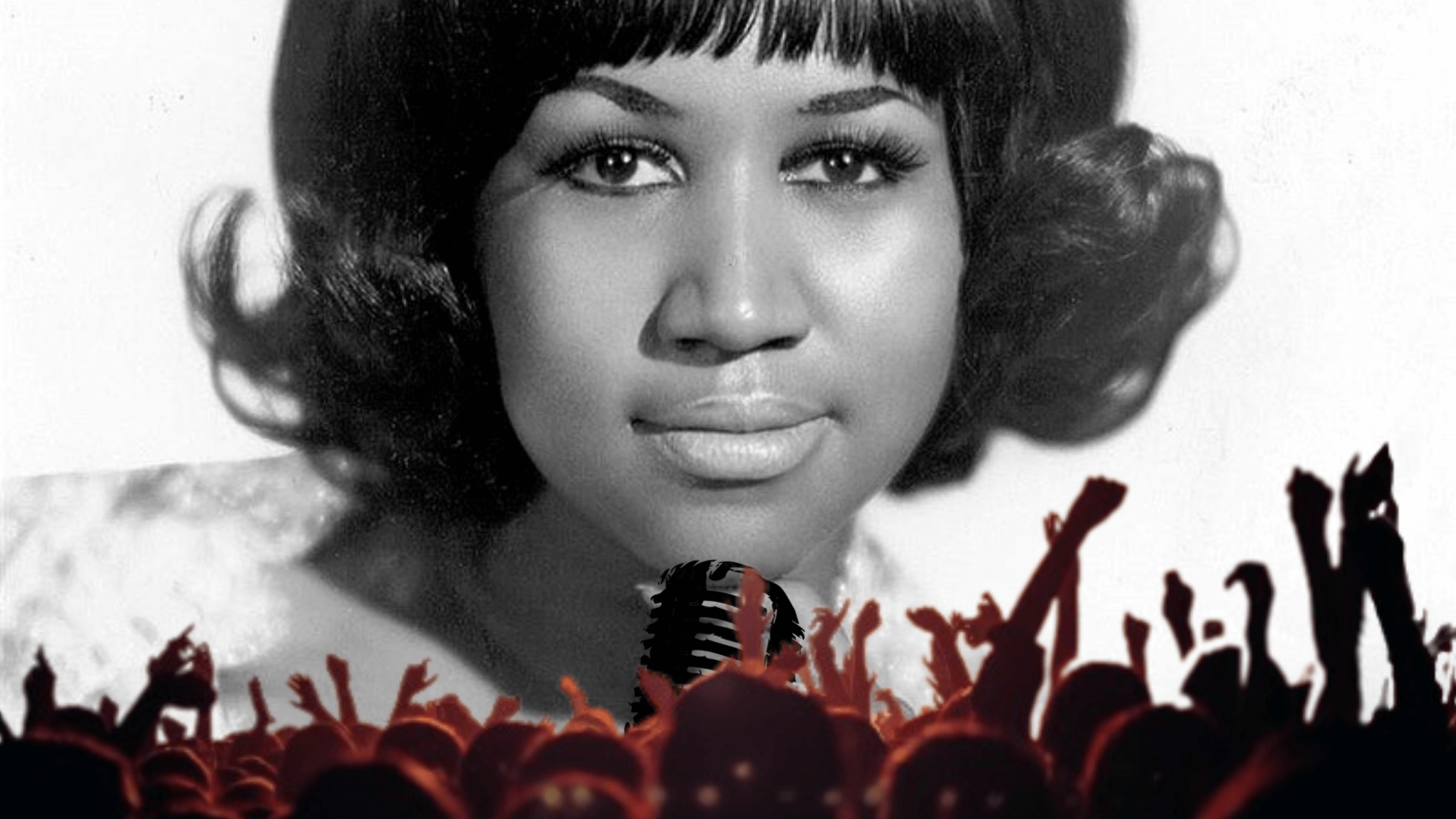Aretha Franklin, the iconic Queen of Soul, wasn’t just about music; she was a symbol of resilience and strength. Her journey was filled with challenges and obstacles that tested her spirit, yet she emerged as one of the most celebrated voices in history. But let’s be real here—her path wasn’t all sunshine and rainbows. Aretha faced more than her fair share of struggles, both personal and professional, but guess what? She turned those challenges into fuel for her fire.
When you think about Aretha Franklin, the first thing that comes to mind is probably her powerful voice and timeless hits like "Respect" or "Think." But behind the glamorous performances and chart-topping records lies a story of grit and perseverance. This isn’t just the tale of a musical genius—it’s also the story of a woman who overcame poverty, racism, sexism, and personal heartbreak to become an icon.
So buckle up because we’re diving deep into Aretha Franklin’s challenges and obstacles. We’ll explore how she navigated through life’s toughest moments while keeping her crown intact. Whether it was battling industry giants, dealing with personal demons, or fighting for civil rights, Aretha did it all with grace and determination. Let’s get started, shall we?
Table of Contents
- Biography of Aretha Franklin
- Early Life and Family Struggles
- Challenges in the Music Industry
- Gender Discrimination in the 60s and 70s
- Racism and Civil Rights Movement
- Health Issues and Personal Battles
- Business Conflicts and Financial Struggles
- Legacy and Impact on Future Artists
- How Aretha Overcame Her Challenges
- Conclusion: Lessons from the Queen of Soul
Biography of Aretha Franklin
Before we dive into the challenges Aretha faced, let’s take a quick look at her life. Born on March 25, 1942, in Memphis, Tennessee, Aretha grew up in Detroit, Michigan, surrounded by gospel music and influential figures in the civil rights movement. Her father, Reverend C.L. Franklin, was a renowned preacher, and her mother, Barbara Siggers Franklin, was a talented pianist and vocalist. Despite their talents, Aretha’s childhood wasn’t easy.
Here’s a quick rundown of her life:
| Full Name | Aretha Louise Franklin |
|---|---|
| Born | March 25, 1942, Memphis, Tennessee |
| Died | August 16, 2018, Detroit, Michigan |
| Occupation | Singer, songwriter, pianist, civil rights activist |
| Genre | Soul, R&B, gospel, jazz |
| Awards | 18 Grammy Awards, Presidential Medal of Freedom |
Aretha started singing in church as a child and quickly gained recognition for her incredible voice. By the age of 18, she signed her first record deal with Columbia Records, but it wasn’t until she moved to Atlantic Records that she found her true sound. Let’s now explore the challenges she faced along the way.
Early Life and Family Struggles
Childhood Poverty and Parental Issues
Growing up in Detroit during the 1950s wasn’t easy, especially for a young African American girl. Aretha’s parents separated when she was six years old, and her mother passed away when she was just ten. These early losses left a deep impact on her emotional well-being. Her father, although supportive, struggled with alcoholism, which added another layer of complexity to her upbringing.
But even amidst these challenges, Aretha found solace in music. She began performing in her father’s church, where she honed her vocal skills and developed a deep connection with gospel music. Her early exposure to gospel laid the foundation for the powerful, soulful sound that would later define her career.
Challenges in the Music Industry
Struggles with Record Labels
When Aretha signed with Columbia Records in 1960, she had high hopes of becoming a star. However, the label didn’t quite understand her unique talent. They pushed her toward pop and jazz standards instead of letting her showcase her gospel roots. This mismatch frustrated Aretha and limited her potential.
It wasn’t until she signed with Atlantic Records in 1967 that she truly found her voice. Atlantic allowed her to collaborate with legendary producers like Jerry Wexler, who helped her create hits like "Respect" and "Chain of Fools." This shift in her career proved that sometimes, finding the right people to work with can make all the difference.
Gender Discrimination in the 60s and 70s
As a woman in the music industry during the 1960s and 70s, Aretha faced significant gender discrimination. Male artists often received more opportunities and recognition, while female artists were expected to conform to certain stereotypes. But Aretha refused to play by those rules.
She became a symbol of female empowerment, using her music to demand respect and equality. Songs like "Respect" became anthems for women everywhere, and Aretha’s boldness paved the way for future generations of female artists.
Racism and Civil Rights Movement
Racism was another obstacle Aretha had to overcome. Growing up in the segregated South, she witnessed firsthand the injustices faced by African Americans. However, instead of letting these experiences break her, she used them as motivation to fight for change.
Aretha became deeply involved in the civil rights movement, performing at benefit concerts and supporting leaders like Martin Luther King Jr. Her music often reflected the struggles and triumphs of the Black community, making her a voice for social justice.
Health Issues and Personal Battles
Physical and Emotional Struggles
Throughout her life, Aretha battled various health issues, including diabetes and weight-related problems. These challenges took a toll on her body and mind, but she never let them stop her from pursuing her passion. Even during her later years, she continued to perform and record music, inspiring countless fans with her resilience.
Emotionally, Aretha carried the weight of her past traumas, including the loss of her mother and the pressures of fame. Yet, she managed to channel these emotions into her music, creating works that resonated with millions of people around the world.
Business Conflicts and Financial Struggles
Despite her massive success, Aretha faced numerous business conflicts and financial struggles throughout her career. Mismanagement of her finances and legal disputes with record labels often left her in precarious situations. However, she remained determined to protect her legacy and ensure that her contributions to music were recognized.
She worked tirelessly to secure her place in history, advocating for fair treatment and compensation for artists. Her efforts helped set a precedent for future musicians, emphasizing the importance of owning one’s work and being compensated fairly.
Legacy and Impact on Future Artists
Aretha Franklin’s impact on the music industry and beyond cannot be overstated. She broke barriers for women and African American artists, paving the way for countless others to follow in her footsteps. Her influence can be heard in the works of artists like Beyoncé, Alicia Keys, and Adele, who have cited her as a major inspiration.
Her legacy extends beyond music, as she became a symbol of strength, resilience, and empowerment. Aretha’s ability to overcome adversity and rise to the top serves as a powerful reminder that no matter the challenges we face, we have the power to triumph.
How Aretha Overcame Her Challenges
So how did Aretha do it? How did she manage to overcome so many obstacles and become the Queen of Soul? It all comes down to her unwavering determination, faith, and talent. Despite the hardships she faced, Aretha never lost sight of her goals. She surrounded herself with people who believed in her and worked hard to create opportunities for herself.
She also leaned on her faith and music as sources of strength. Whether she was singing in church or performing on stage, music was her refuge and her power. Her ability to connect with audiences on such a deep emotional level was a testament to her authenticity and passion.
Conclusion: Lessons from the Queen of Soul
In conclusion, Aretha Franklin’s journey is a testament to the power of perseverance and resilience. From her early struggles with poverty and family issues to her battles with racism, sexism, and health problems, she faced more challenges than most people could imagine. Yet, she rose above them all to become one of the most celebrated artists in history.
Her story teaches us valuable lessons about overcoming adversity, standing up for what we believe in, and using our talents to make a difference in the world. So the next time you listen to "Respect" or any of her other classics, remember the incredible journey behind the music.
Now it’s your turn! Leave a comment below and let me know which part of Aretha’s story resonates with you the most. And don’t forget to share this article with your friends so they can learn about the incredible life of the Queen of Soul.


